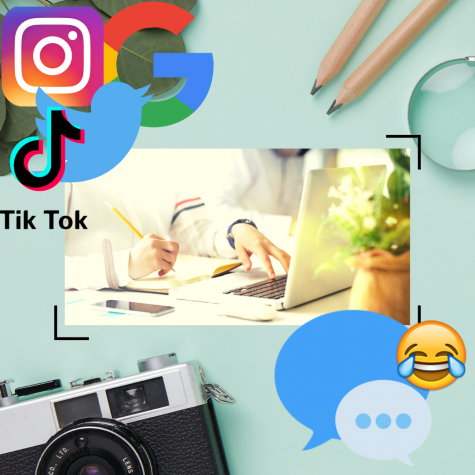25 hours of screen time a day
Teens are growing alarmingly reliant on technology.
Though it’s hard to imagine life devoid of late-night Netflix binging, or kids filming Tiktoks, parents weren’t lying in saying, “Back in my day, phones didn’t even exist!” As much as it may pain us to admit, teens were better off before phones.

According to a study done by the Pew Research Center, nearly 95% of U.S. teens use or have access to smartphones. With screen time on the internet skyrocketing, many parents are becoming concerned with its negative effects, which include obesity, slacking off on homework, and sleep disorders.
Teen social media use is normal, but there is a point where reliance on the Internet becomes addiction. Hands constantly check pockets for phones, whose screens light up every few seconds. Nearly 80% of kids admit to checking their phones hourly, and 75% feel the urge to respond to texts or chats immediately.
But beyond the social implications, the Internet’s tendency to “shut off” teenage brains may be most alarming. Author Nicholas Carr believes that teens should take a break and step away from the screen, because the Internet does not improve intelligence.
With the Internet’s existence, there is a reduced urge to think. Search engines become our second brains, since answers are so easily accessible. Problem-solving is an essential life skill that is dampened instead of honed by the prevalence of the Internet. With the temptation to let Google figure things out, students are never learning anything on their own.
That doesn’t mean the Internet is some hulking monstrosity, though. Think about it this way. Calling teens too dependent on the internet is similar to saying we’re overly reliant on calculators for hard math problems. Sure, it would be possible to solve the problem “the hard way,” or by hand; but when a faster and more accurate method is accessible, it’s logical for teens to utilize their resources.
However, on easier problems, students can put the calculators aside and make do with their own mental capabilities. But people fear failure; though the Internet guarantees
quick, fail-proof answers, it’s better to try and fail on your own so you learn something.
After all, that is what makes our brains, and not the Internet, human.




